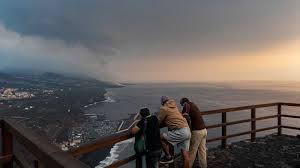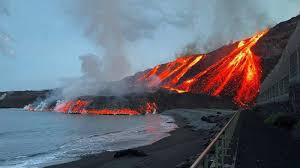 La Palma became in 1983, the first Spanish island recognized as the World Biosphere Reserve.
La Palma became in 1983, the first Spanish island recognized as the World Biosphere Reserve.
The fact that this recognition was extended to the whole island in 2002 is a reflection of the importance of the conservation and protection of the biological and cultural diversity of La Palma.
Aware of the impact that the eruption has had and will have on the flora and fauna of the island, the Ministry for Ecological Transition and the Demographic Challenge, through Natural Parks, O.A., has approved three lines of direct funding:
- 15 million € transferred to the Canary World Biosphere Reserve Foundation for the restoration and development of water resources, the restoration and development of energy through the promotion of sustainability, more efficient and clean energies, and the recovery and improvement of trails, viewpoints, landscapes and heritage.
- € 10 million transferred to the Autonomous Community of the Canary Islands in order to grant aid to the municipalities included in the area of socio-economic influence of the Caldera de Taburiente National Park that have been affected by the eruption.
- 12 and 3.3 million € transferred to the Government of the Canary Islands and the Cabildo de La Palma, respectively, to subsidise all those actions developed from the date of the eruption until 31 December 2024, with the possibility of extension, in terms of prevention and mitigation of damage to biodiversity and natural heritage. With this grant, nearly 90 three-year jobs will be created, of which at least 15 have medium-high skill levels.

Significant advances are being made by these funds, since contact has been established with PLOCAN and the municipalities of Tazacorte and Fuencaliente de La Palma to begin the work of implementing a scientific infrastructure that allows the continuous monitoring of the seabed affected by the flows, including actions on threatened species and on invasive alien species; monitoring of the volcano among protected species; generation of native plant through specialized personnel training, and monitoring and actions on the marine environment.
It should be noted that part of the Cabildo, studies of, distribution and for the conservation of vertebrates and invertebrates, study of the dynamics of the affected Canarian pine grove or the expansion and improvement of the facilities of the Indigenous Flora Nursery and the Wildlife Rehabilitation Center of the Cabildo are being carried out.